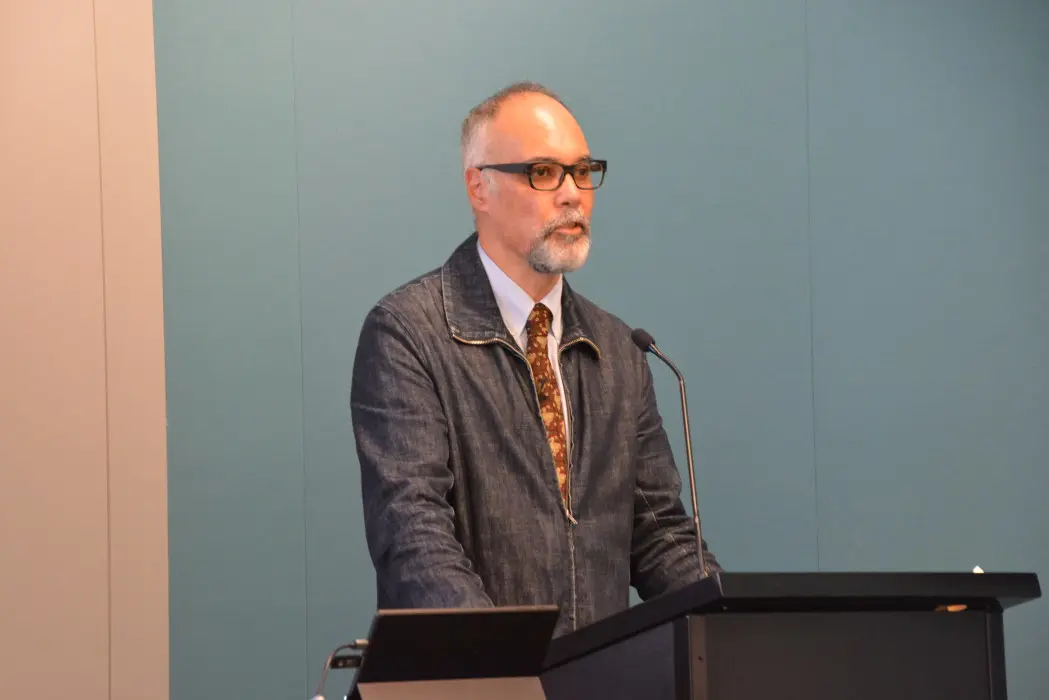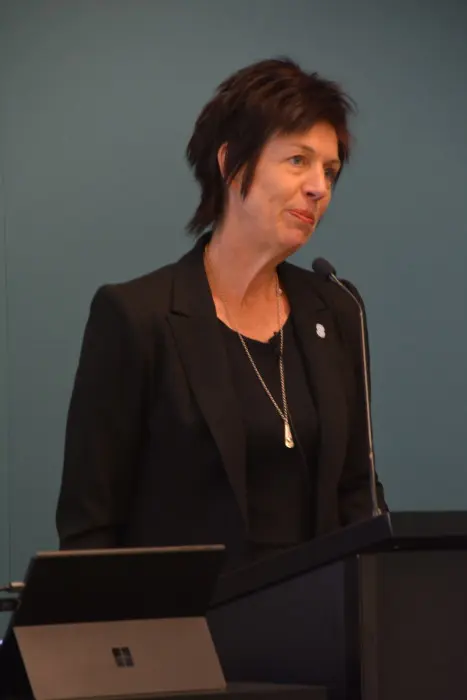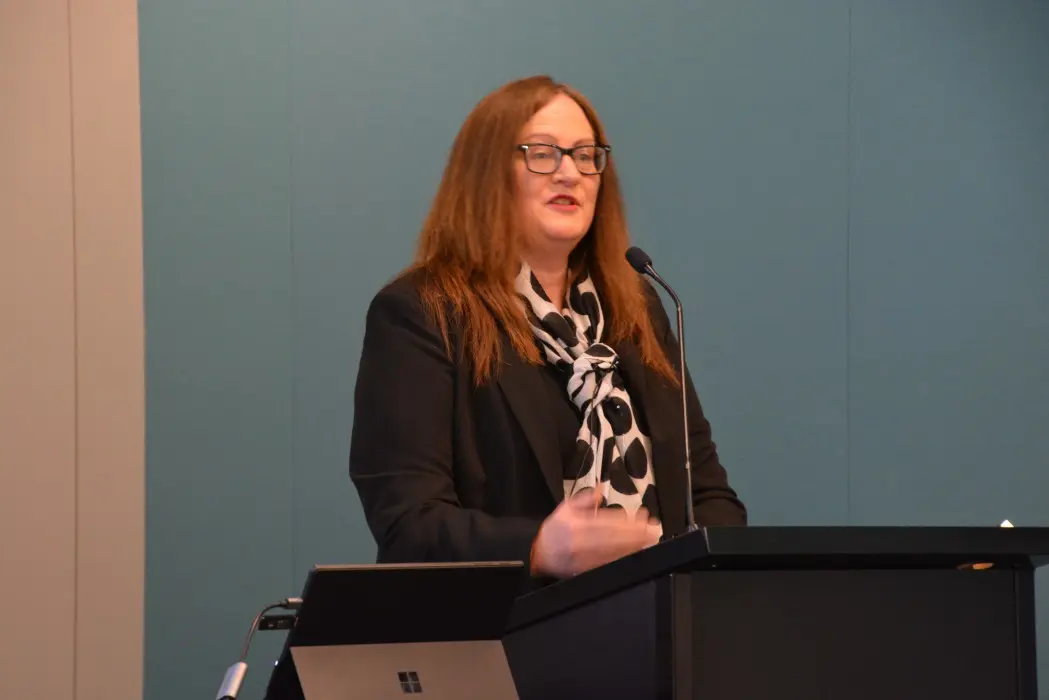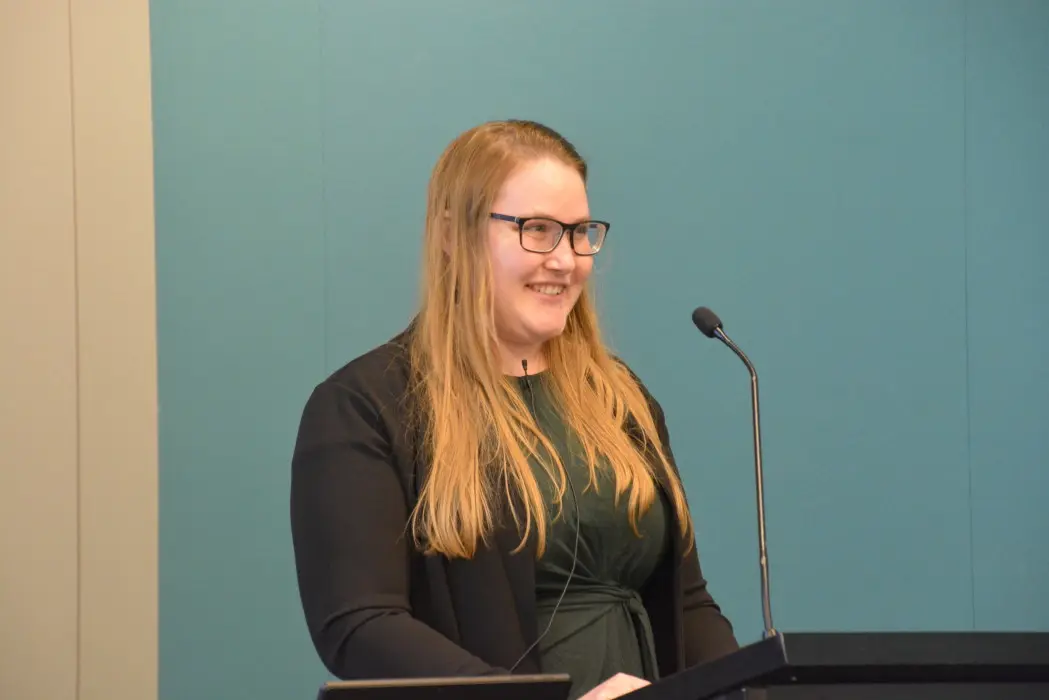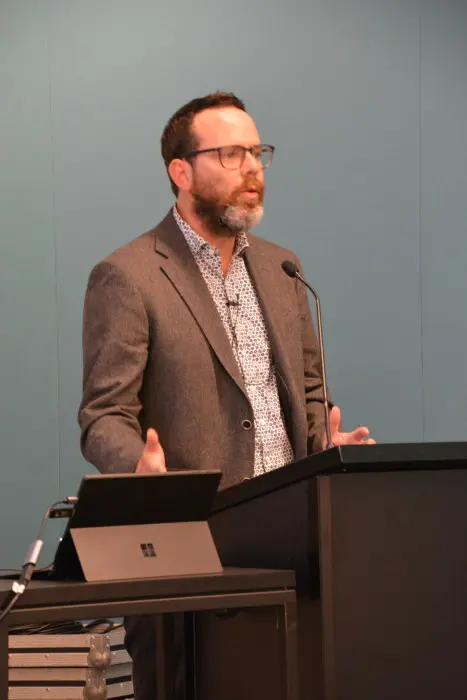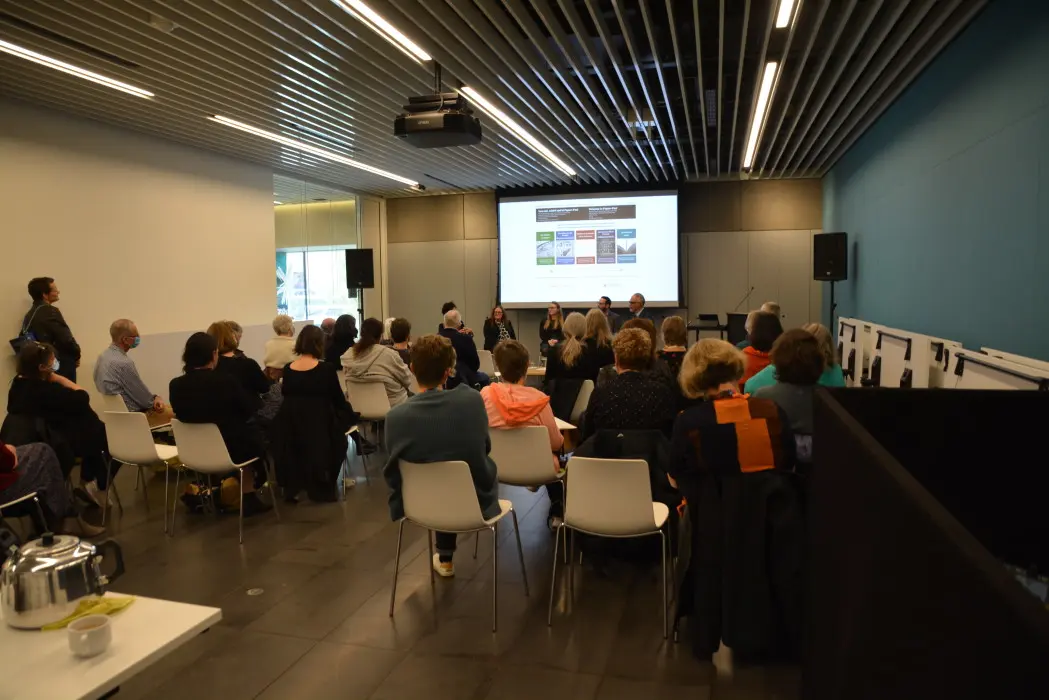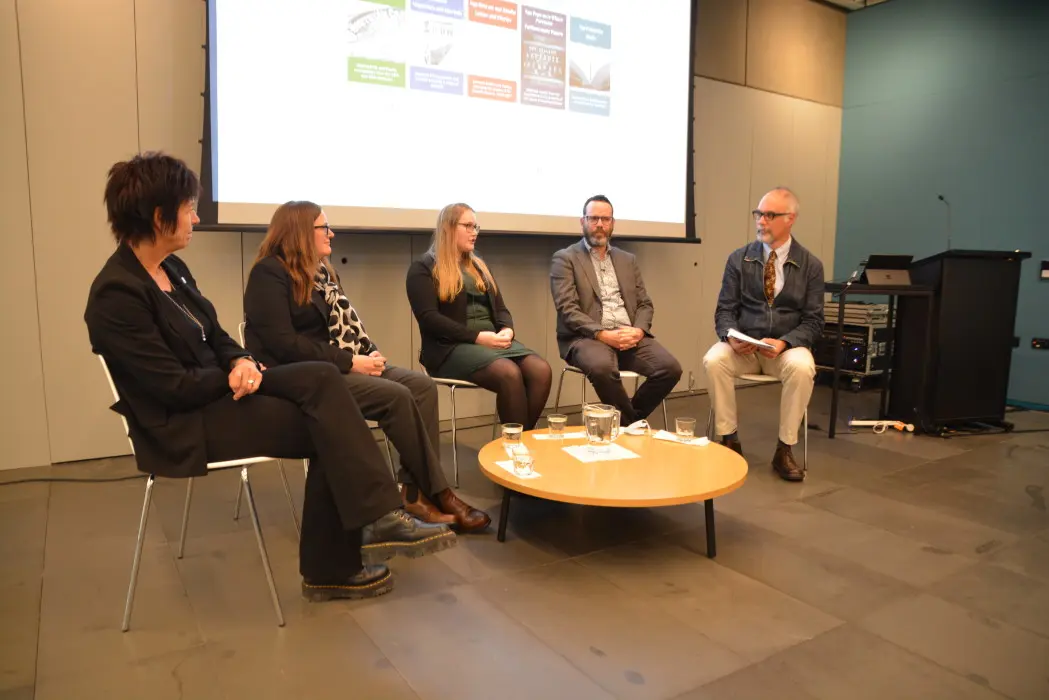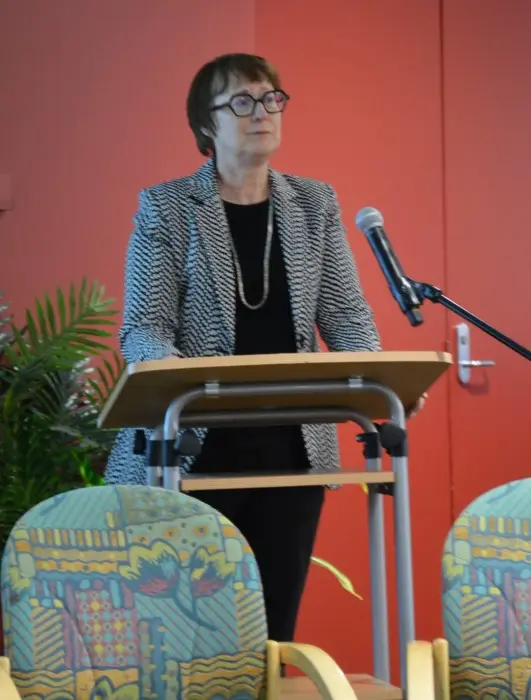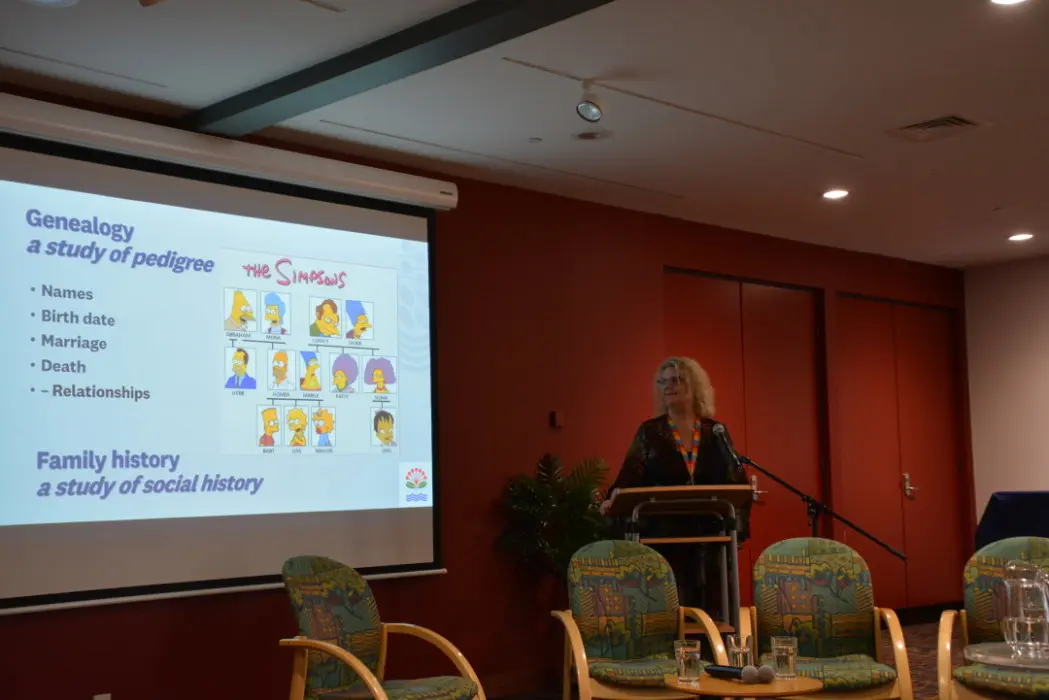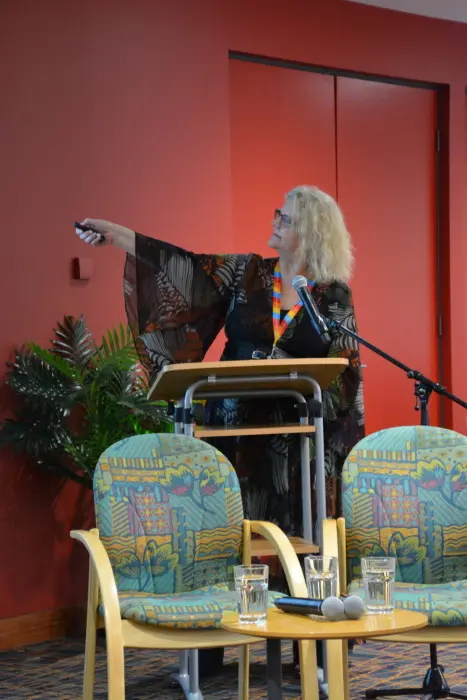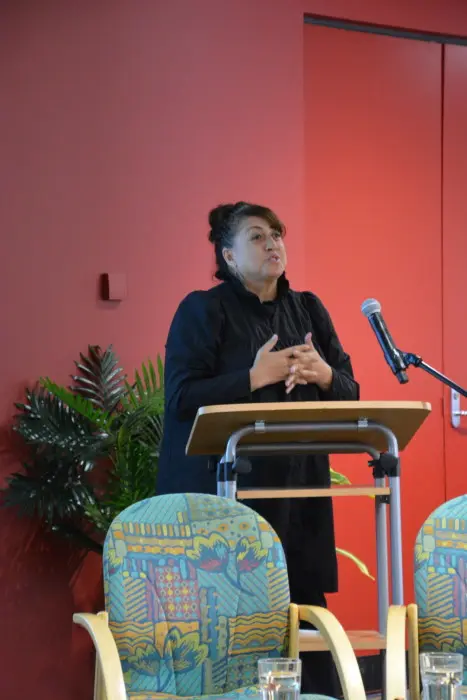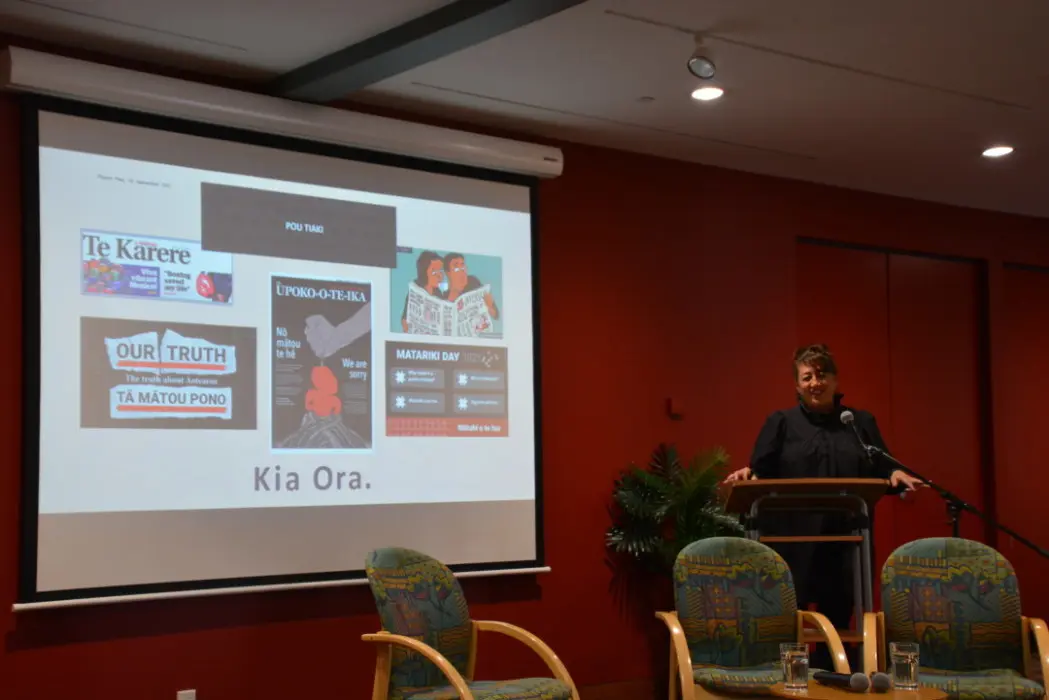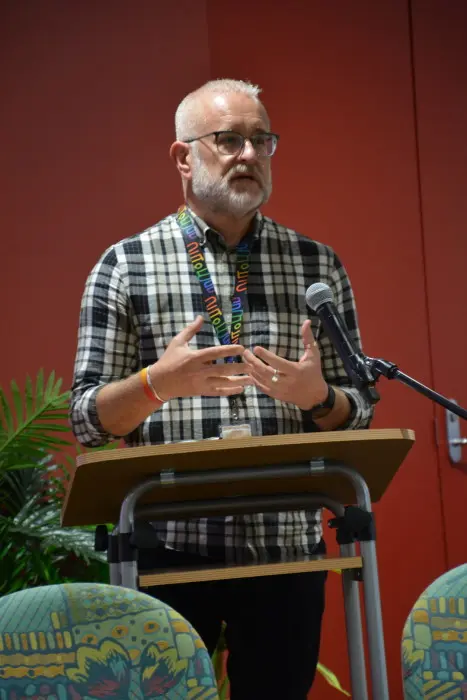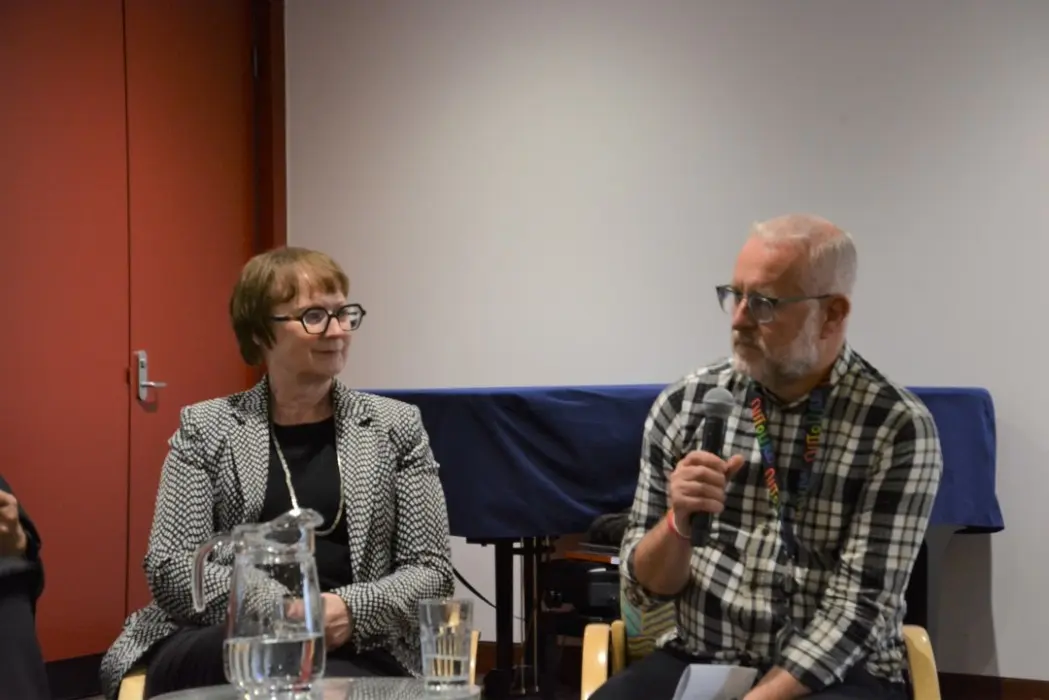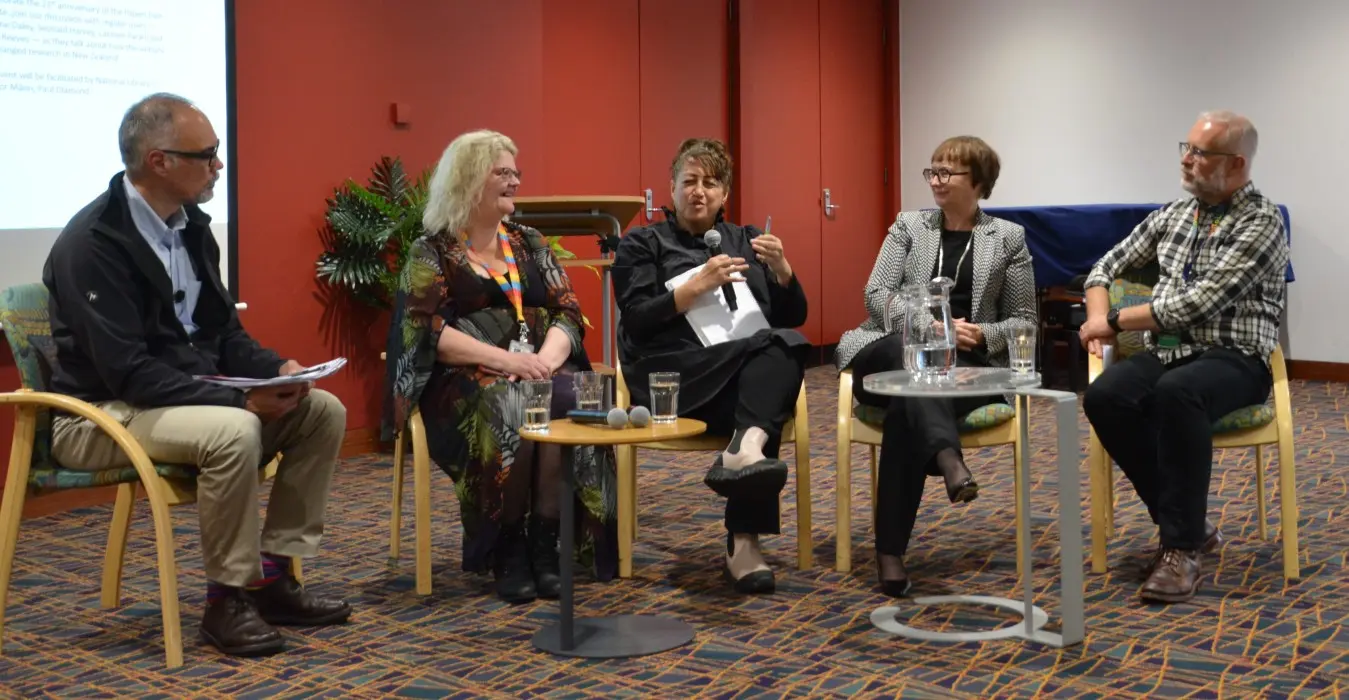Papers Past turns 21: Panel discussions
Paul Diamond, Curator Māori, Alexander Turnbull Library, led a series of three panel discussions to celebrate the 21st anniversary of Papers Past. PHANZA members Reuben Daubé, Robyn Burgess and David Verran report below.
Wellington — National Library, 18 August 2022
The event was chaired by Paul Diamond (National Library) who opened the discussion with a history of Papers Past, from humble beginnings to becoming (with over 35 million views annually) the National Library’s most popular website. Diamond invited each panellist to share their experiences of using Papers Past over the last 21 years.
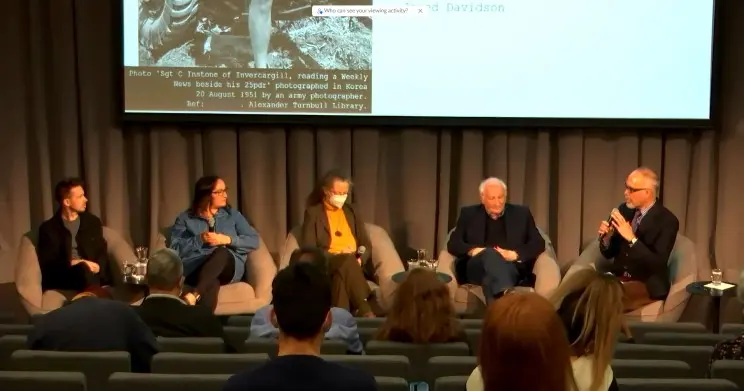
Panel discussion at the Wellington celebration of Papers Past's 21st anniversary.
Left to right: Jared Davidson, Arini Loader, Sydney Shep, Ian F. Grant, Paul Diamond.
Sydney Shep
As Sydney Shep (Te Herenga Waka University of Victoria) remarked, Papers Past has changed the way researchers work in New Zealand. We have become digital historians – searching for any mention of a person, place, or topic amidst a vast online database. Sydney warned that for every door Papers Past can open, another door may close. Unless you have a key word or phrase, one can overlook important information, or use abject material skewed by algorithms. The digital world is challenging, and researchers must work harder than ever to navigate it.
Arini Loader
Arini Loader spoke of her experiences teaching history at Victoria University, where she has seen first-hand how Papers Past can inspire, yet equally challenge her students. A Māori perspective is largely absent from Papers Past, with even less material in te reo Māori. Teaching students to peel back the layers of a colonial narrative and unearth the voices of tangata whenua is difficult. This challenge is exacerbated by the fact many younger students have only ever used Papers Past for research. Consequently, many are not mindful of any underlying prejudices – whose voices are being heard and who remains silent – or the context for which a document has been sourced.
Ian F Grant
From printing the student union magazine in the sixties, to trawling Papers Past for his most recent publications, print media has been ever present in Ian Grant’s life. Although, at times, it can feel like searching for a needle in a haystack, Papers Past provides a fascinating snapshot into ordinary life – the attitudes, fashions, and feelings of a particular time. Paper Past allows one to trace a person’s life, career, achievements, and indiscretions, as nearly everything was published in the newspapers of the day. Ian argued the success of Papers Past has been how it has made researchers take the role of newspapers and cartoons in our society more seriously.
Jared Davidson
As Jared Davidson (Alexander Turnbull Library) put it: ‘Papers Past is the gateway drug into the seedy world of archives and libraries.’ The website is the entry point that sparks interest and enables many to get into more serious research. For Jared, Papers Past has been vital for tracing New Zealand’s working-class history and has formed the backbone of much of his published work. Papers Past is both accessible and engaging, enabling one to dip in and out of history with ease. Jared argued that recognising the absence of context, a downside of the quick search function, is a critical skill needed for researchers to utilise the website effectively.
The next 21 years?
The panel discussion concluded with a question-and-answer session, which produced a wide-ranging and informative discussion. The panellists challenged Papers Past to increase its use of Māori language and perspectives, and to digitise a wider range of material up to the present day. The challenge? How will Papers Past capture social media and newer forms of news-making?
Reuben Daubé (Heritage Advisor, Wellington City Council)
Christchurch — Tūranga, 12 September 2022
Speakers at the Papers Past turns 21 Christchurch event – Kamala Hayman, Katie Pickles, Lydia Mearns and Martin Fisher – shared their insights on how Papers Past has changed our research lives. Paul Diamond set the scene and facilitated the panel discussion.
Kamala Hayman
Kamala Hayman (The Press editor) noted that Papers Past provided stories of old for the 160th anniversary of The Press in 2021. The Press archives had been lost in the Canterbury Earthquakes ten years earlier so the digitised papers saved the day. Still, initially not enough was accessible, so The Press copyright permissions for Papers Past digitisation were extended. Not all past stories sit well with us today. Women’s Suffrage was the screeching sisterhood, Elvis was raucous, and the Beatles were awful. Articles are just a reflection of the writer and the paper. They are part of a puzzle, even if sometimes painful and difficult. Today’s content will be sources for the future. They will be subjective in their way too.
Katie Pickles
Papers Past has revolutionised how we do history said Katie Pickles (University of Canterbury). No longer getting inked fingers on decaying newspaper or reading through a magnifying glass, research through digitisation is now cleaner, sanitised and it has changed how we sniff out stories. You can do much more, much faster. But, take care, the digital is not a complete record. Word search parameters can lead to a ‘smash and grab’ approach to history. Old newspapers, and our searches in Papers Past, are themselves like an ever-growing curated scrapbook.
Lydia Mearns
Home-based usage of Papers Past has gone through the roof during the COVID19 pandemic observed Lydia Mearns (Underground Overground Archaeology Ltd). For archaeological research, it can be a key resource to access information identifying if a place is pre-1900. All sorts of things are searchable for this – tender notices, descriptions of a place, magisterial notices, A to Js, shipping notices. You think of archaeologists getting dirt under fingernails and historians getting ink on their fingertips. Papers Past could be seen to let historians become digital archaeologists.
Martin Fisher
For Martin Fisher (Ngāi Tahu Centre), free access to Papers Past is a privilege. A treasure trove of information for whanau histories, it cuts across generations. In particular, it can be very helpful for the Waitangi Treaty Claims process. Material now available through Papers Past sometimes hasn’t been seen by whanau. Reporting from the Native Land Court (now Māori Land Court) fills in gaps and gives differing perspectives. But the sources don’t sit on their own. There’s still a paucity of Māori language newspapers and other material.
Yesterday’s news
Newsprint is the worst quality paper. It was never designed to last. Now its in short supply. The digitisation and accessibility of old newspapers through Papers Past allows that fascinating lens into the past. But what of the future of newspapers? Kamala thinks they won’t be around in the future but there will still be a need for independent fearless journalism. After all, journalists are observers of society. Even if imperfect, the work they do will inform researchers in the future. As Katie says, in years to come, who knows what will interest people about life today?
Robyn Burgess (Senior Heritage Advisor, Heritage New Zealand Pouhere Taonga, Christchurch)
Auckland — Auckland Libraries, 30 September 2022
Paul Diamond introduced the talks and the speakers, and chaired the concluding remarks from the panel. Papers Past is the most popular National Library website. Paul took us through the milestones of its initial website in 2001, the addition of text searchability in 2007 and the addition of other formats in 2016, including now 422 book titles. Nevertheless, only 5% of all published newspapers pages are so far available on it to ‘check the work of historians’.
Caroline Daley
As a student in the 1980s, Caroline Daley (University of Auckland) had her first introduction to the rich material in newspapers from both hard and microfilmed copies. Her students now, on the other hand, largely only know historic newspapers from Papers Past. She acknowledged the friendly interface of Papers Past, the fact that it is free, not subscriber based and it is environmentally sustainable – users don’t have to physically travel to access the resources. Nevertheless, she also warned that Papers Past didn’t provide history in itself, context was vital. Mere access to newspaper resources doesn’t make an historian she said. Searchers needed to know what terms to use when searching, and appreciate the wider picture presented in the whole newspaper rather than just the successful search results.
Seonaid Harvey
Seonaid (Shona) Harvey (Auckland Libraries) spoke to her progression from being a genealogist searching for dates of birth, death and marriage to becoming a social historian, appreciating the wider social background to those and other life events. Successful searches very often lead on to searches for official documents and reports, and church, school and court records amongst others. She also emphasised the positive results of browsing newspapers, rather than just searching for specific names and places.
Carmen Parahi
Carmen Parahi (Stuff.co.nz) spoke of Stuff’s progression into understanding how Māori were portrayed in newspapers, especially those included in Papers Past, and to contextualise that representation. An example was how some press had treated Tame Iti in the past. Newspapers now needed to hold themselves to account and Stuff had adopted its Pou Tiaki charter. This included a public apology by Stuff which has been given. Resources made available in Papers Past had helped shift the culture at Stuff and a move to more use of te reo Māori.
David Reeves
David Reeves (Auckland Museum) was the last speaker and he commended the increased visibility of newspapers as documentary heritage through Papers Past, offering also a window into personal histories. He appreciated that it was just on one platform, allowing for collaboration from other institutions such as the addition of the texts of early Auckland newspapers of the 1840s from several libraries and museums. However, he also feared that there may be too much available, making it less easy for researchers and that some packaging or curating of material may be necessary. He also spoke to National Library’s leadership on copyright and the threat posed by free trade agreements raising copyright from fifty to seventy years back.
Discussion
It was noted that many today don’t read a physical daily newspaper or go to libraries. If text wasn’t digital then to many it doesn’t exist and Instagram is also regarded by many as an authority. To overcome this a renaming of Papers Past may be necessary. Some older researchers also didn’t know how to use a library catalogue or a database, and libraries and other institutions needed to have available bibliographies, comprehensive ‘help’ pages and ‘how to’ tools. Nevertheless, dangers were seen in over-curation, who ‘curates the curators’ and what may be scrapbooked in one decade may not suit another’s future needs. Waitangi Tribunal papers also need to be more readily accessible in the same way as Papers Past’s resources. The ability to correct Optical Character Recognition (OCR) text was a forthcoming feature, in the same way as volunteers assist with Trove (Papers Past’s Australian equivalent).
David Verran (Local Historian, Auckland)
Happy 21st Papers Past!
Thanks PHANZA
A big thanks to the Professional Historians’ Association of New Zealand/Aotearoa (PHANZA) and to PHANZA members Reuben Daubé, Robyn Burgess and David Verran for their reports on the events.
PHANZA represents the interests of New Zealand’s professional historians.
The association was formed in 1994 in response to the increasing number of historians forging careers outside of the academy.
They provide support to their members by advocating on behalf of the community, promoting professional standards, providing advice to historians, notifying members of employment opportunities, and notifying members of upcoming events.
For more information, visit the PHANZA website.
